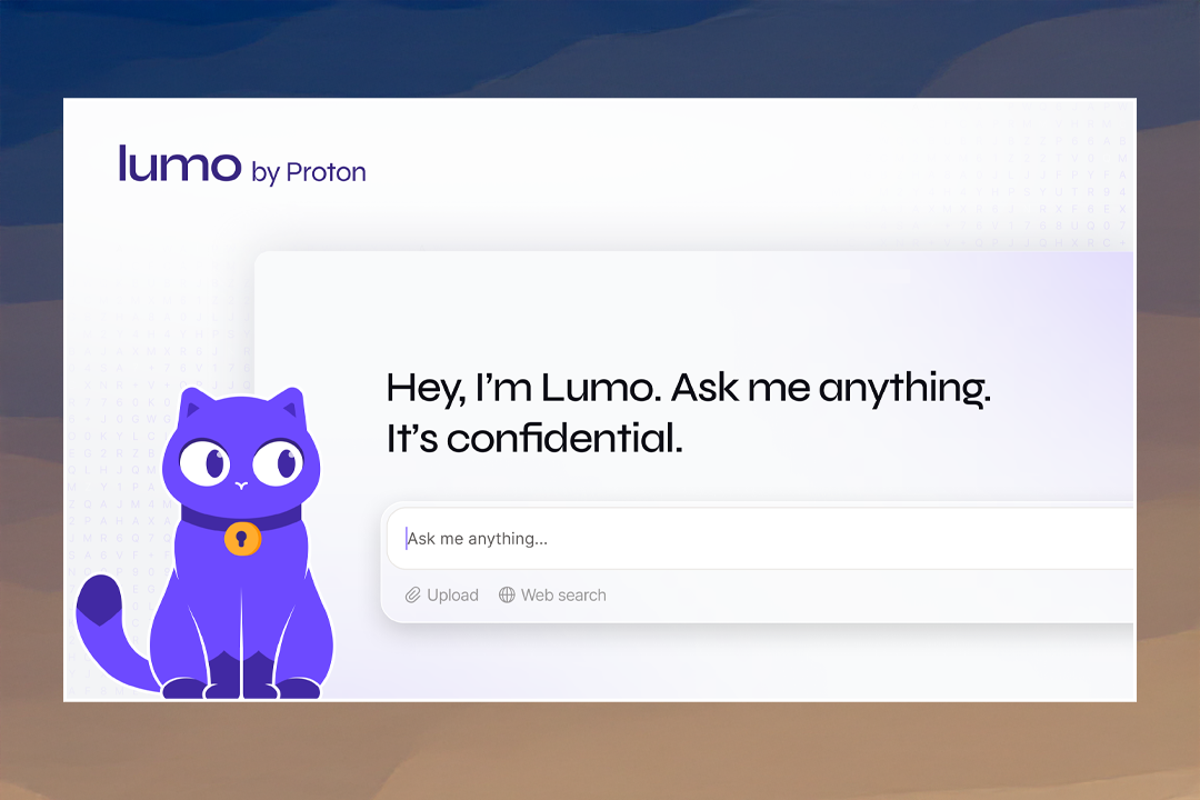
There’s a glut of generative AI assistants across the internet. Almost all are powered by large language models that are trained on your conversations. Now, Swiss privacy company Proton is promising a more private alternative.
The company, better known for its secure email and VPN service, is now expanding into AI with Lumo, a new assistant launching today. Like OpenAI’s ChatGPT, Google’s Gemini and Anthropic’s Claude, it’s designed to help with everyday tasks, including rewriting emails, summarising documents and reviewing code, but with a difference. Proton says it doesn’t log, store or train its models on your prompts or chats.
The big question, which we’ll find out over the coming days and weeks, is how Lumo will compare to models trained on far larger datasets. The most advanced assistants are powered by huge amounts of user data, which helps them learn patterns and understand nuance to continuously improve over time. Proton’s going for a more stripped-back, privacy-first approach.
What is Lumo?
Lumo is Proton’s privacy-first answer to the myriad generative AI assistants released over the past couple of years. Like most AI assistants, Lumo can answer questions, summarise text, rewrite emails and review code. It also supports file uploads and integrates with Proton Drive, so users can work directly with their own documents. By default, Lumo doesn’t pull in information from the internet to answer questions, but if you choose to enable web search, it will use privacy-first search engines. Proton says those queries still aren’t logged or used for model training.
Unlike ChatGPT and Gemini, Proton says conversations with Lumo are completely confidential. Chats are end-to-end encrypted, not stored on Proton’s servers and never used to train AI models, meaning the company can’t access them, share them or learn from them.
To put that into context, ChatGPT stores conversations for 30 days for safety reasons, even if you turn off chat history in the settings, which disables training but not short-term retention. Gemini can also keep prompts for up to 72 hours, even with activity tracking switched off. Claude doesn’t train on chats by default, but still holds onto them for up to a month, or longer if they’re flagged.
All three services are also based in the US, which means they can be legally required to hand over user data. Proton, by contrast, is headquartered in Switzerland, which has stricter privacy laws.
Proton hasn’t confirmed which models it’s using, but Lumo is likely built on smaller, community-developed systems rather than the massive, privately trained models behind services like ChatGPT. That could mean its responses are less detailed or nuanced, though we’ll have a better idea once the source code is released.
How to use Lumo
Lumo is available now on the web, as well as via the Lumo app for iOS and Android. There are three tiers of Lumo – two free and one paid. While you don’t need an account, guest users can only ask a limited number of questions each week, and those chats aren’t saved unless you sign in.
If you already have a free Proton account, you’ll automatically get access to the Lumo Free tier, which includes basic encrypted chat history, a limited number of bookmarks and support for small file uploads. It’s available to all Proton users, including those on business plans.
The paid Lumo Plus subscription costs £10.59 a month (or £8.19 if you pay annually). It gives you unlimited chats, longer chat history, the ability to save more favourites and support for uploading bigger or multiple files. It’s also included with Proton’s Visionary plan. That’s cheaper than ChatGPT Plus, Gemini Advanced and Claude Pro, which all cost around £19.99. However, with Lumo’s stricter privacy focus, it might not be as intelligent.
Care about your privacy? Have a read of our round-up of the best VPNs







